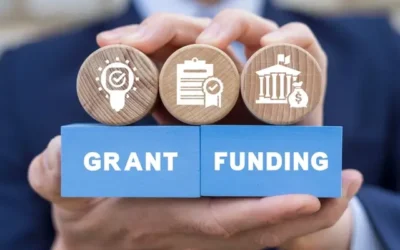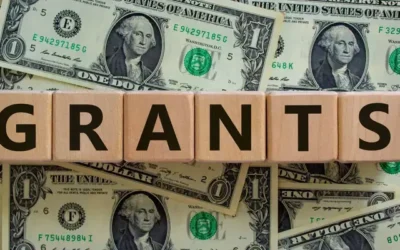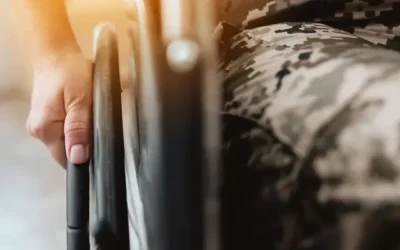VA Loans for Disabled Veterans in 2026
Disabled Veterans often get the strongest VA loan advantages because you can cut major upfront costs and still qualify with stable income. The biggest win is funding fee exemption when you qualify. The next wins are cleaner DTI math with tax free income and state level property tax relief that can reduce your monthly escrow payment.
Funding fee exemption can save thousands
- No funding fee when you qualify: Veterans receiving VA compensation for a service connected disability are commonly exempt from the VA funding fee, which can otherwise add a large amount to your loan balance.
- Pending claim refund path: If you pay the fee at closing and later receive compensation with an effective date before closing, you may be able to request a refund, but you must follow the process.
- Purple Heart exemption can apply: Certain active duty Purple Heart recipients may qualify for exemption. Confirm early so your Loan Estimate reflects the correct structure.
Disability compensation can boost qualifying power
- Counted as stable income: Lenders typically treat VA disability compensation as reliable income when your award letter and deposit history are verified, since it is expected to continue under most circumstances.
- Tax free income can be grossed up: Many lenders increase the counted income amount for DTI calculations because the income is not taxed. That can improve your ratio on paper, while residual income still uses real cash flow.
- Sole income can work: Some borrowers qualify using disability compensation alone, as long as the payment fits DTI and residual income and the credit profile supports the overall risk story.
Property tax relief can lower your monthly payment
- Escrow payment can drop: If your state offers property tax exemptions for disabled Veterans, your monthly escrow can be materially lower, which can make qualifying easier and improve monthly cash flow.
- Rules vary by state and rating: Some states offer full exemptions at a one hundred percent rating, while others provide tiered reductions. Always verify with your county or state program before budgeting.
- File the exemption fast after closing: Many exemptions are not automatic. Apply as soon as you close so your escrow can be adjusted sooner, then watch for refunds or corrected tax bills.
Adapted housing grants and VMLI add protection
- SAH and SHA can fund accessibility work: If you qualify, these VA grants can help you buy, build, or modify a home for accessibility needs, reducing the cash you would otherwise spend on ramps, bathrooms, and entry changes.
- TRA can help when you live with family: If you are temporarily living in a family member’s home, adaptation funding may be available to modify that home so it works for your needs during the transition.
- VMLI can protect your family: Disabled Veterans who receive an SAH grant may qualify for Veterans Mortgage Life Insurance, which can pay off a mortgage up to program limits if you pass away.
FAQs
Who is exempt from the VA funding fee?
Can I qualify for a VA loan using only disability income?
Can SAH or SHA grants be used with a VA loan purchase?
Disabled Veterans often get the strongest cost advantages inside the VA loan program, but the benefits only show up when your documents and your loan estimate are built correctly. The core wins are the funding fee exemption, the ability to use stable, tax free disability compensation for qualification, and additional programs that can reduce long term ownership costs. Use the sections below to lock down eligibility, protect cash to close, and avoid paying fees you should not pay.
Do Disabled Veterans Get Better VA Loan Benefits?
Yes. Disabled Veterans can reduce upfront costs and improve approval strength through fee waivers and stable income treatment. The biggest difference is the VA funding fee exemption, which can save thousands at closing. You still must qualify under lender underwriting and buy a primary residence, but the cost and documentation profile is often meaningfully better than a non exempt file.
- Funding fee exemption can reduce cash to close or reduce the financed balance, which can lower the monthly payment and preserve reserves for repairs, escrow changes, and moving costs that commonly hit in year one.
- Disability compensation is usually treated as stable income, and many lenders can apply tax equivalent treatment for DTI math, which can help when your file is close to a ratio line but cash flow is strong.
- State and local property tax relief can reduce the escrow portion of your monthly payment after approval, but you should budget conservatively until the exemption is confirmed and applied by the local taxing authority.
- Adaptive housing programs can reduce out of pocket modification costs for accessibility needs, which protects savings and reduces the risk of deferring critical safety improvements after closing.
- Confirm your funding fee exemption status early and make sure the loan estimate reflects it, because fixing a wrong fee at the end creates re disclosures and closing delays.
- Underwrite the payment using real taxes, insurance, and HOA dues, then treat any future property tax relief as upside after approval, not as required affordability support.
- Build a document packet that includes disability proof and deposit history so underwriting does not pause, and keep your credit and bank activity stable until funding.
VA Loan Resources
- Complete VA Loan Guide – Eligibility, core benefits, and how VA mortgages work.
- VA Loan Requirements – Credit, income, and service rules you need to qualify.
- VA Funding Fee Explained – Rates, exemptions, and how to roll it into your loan.
- VA Loan Closing Costs – Typical fees and how sellers can help pay them.
- VA Minimum Property Requirements (MPRs) – What homes must have to pass the VA appraisal.
- Check VA Eligibility – Speak with a VA approved lender to check your VA loan eligibility.
How Does the VA Funding Fee Exemption Work?
Most disabled Veteran cost savings start with the funding fee exemption. If you qualify, the VA funding fee is not charged on eligible VA loans, which can save thousands on typical purchase balances. The key is that the exemption must be reflected on the COE and correctly shown on disclosures, and refund rules depend on the effective date when a claim is approved after closing.
| Scenario | Loan amount | Funding fee rate | Funding fee cost | What exemption changes |
|---|---|---|---|---|
| First use, zero down purchase | $400,000 | 2.15% | $8,600 | Exemption removes the fee from cash to close or from the financed balance |
| Subsequent use, zero down purchase | $400,000 | 3.3% | $13,200 | Exemption removes a larger fee, which can materially improve payment and reserves |
- Many borrowers receiving VA compensation for a service connected disability are exempt, and some borrowers eligible to receive compensation can also be exempt even if they receive retirement or active duty pay instead.
- Active duty Purple Heart recipients can qualify for exemption when they provide evidence on or before closing, so timing and documentation matter or the fee can be charged incorrectly.
- Refund eligibility depends on an award effective date that is retroactive to before the loan closing date, so the critical detail is the effective date language, not the day your letter arrives.
- Loan disclosures should show zero funding fee when exempt, so the borrower should verify this early because a late correction can cause a last minute closing delay or an incorrect charge.
- Ask the lender to pull your COE early and confirm the funding fee line item is removed on the initial loan estimate, then recheck the closing disclosure for the same correction.
- If a claim is pending, ask how the lender handles pending status at closing, then keep the award letter and effective date proof in your records in case a refund request becomes eligible later.
- If the fee was charged incorrectly, escalate immediately before funding, because post closing corrections can take time and can create avoidable servicing friction later.
VA funding fee and loan closing costs.
How Does Disability Compensation Affect VA Loan Approval?
Disability compensation can strengthen approval because it is generally stable, recurring, and tax free. Many lenders treat it favorably when documenting continuity, and some lenders apply tax equivalent treatment for DTI calculations. The guardrail is that gross up helps ratio math, but it does not increase real cash flow, so residual income and your budget must still work on actual deposits.
- Stable disability compensation can help when employment income is variable, because it provides a predictable base that supports residual income and reduces the risk of payment stress during job changes or duty transitions.
- Tax free income can be grossed up for DTI calculations at some lenders, which can reduce your ratio on paper, but the real advantage is that you still have the actual cash to pay the mortgage each month.
- Residual income is calculated on real cash flow, not on grossed up numbers, so a borrower can pass DTI but still fail residual income if the housing payment consumes too much monthly budget room.
- You can qualify using disability income as the sole income source if the payment is conservative and the file is strong, but thin reserves and high payment shock are common decline triggers even when income is stable.
- Provide a current benefit letter and at least sixty days of matching deposits so the lender can document amount and receipt history without repeated conditions and timeline drift.
- Ask the lender how they treat non taxable income for DTI and what compensating factors they require when DTI is high, then set your home price using the payment you can sustain without stretching.
- Keep reserves after closing and avoid new debt, because a strong disability income file still fails when cash is thin and one repair or escrow increase forces revolving debt use.
VA Lender’s Handbook Chapter 4.
What Property Tax Relief Can Reduce Your Payment?
Property tax relief can reduce the escrow portion of your monthly payment, but the rules are state and county specific and usually require an application. Some states offer full homestead exemptions at certain disability levels, while others offer tiered reductions. The safest planning move is budgeting with full taxes until the exemption is approved and appears on the tax roll.
- Tax relief can materially improve affordability because it reduces recurring escrow cost, but timing matters, since exemptions often apply only after filing, review, and the next tax roll update cycle.
- Tiered exemptions can still help at partial ratings by reducing taxable value, but the payment impact varies with local tax rates, so you should estimate savings using your county tax rate, not generic statewide averages.
- Moving can reset or change exemptions, so buyers should plan for re filing when they change homes and should not assume the previous exemption transfers automatically to a new address.
- Some borrowers reduce payment risk by keeping a monthly buffer even after exemption approval, because insurance and assessment changes can offset tax savings over time.
- Ask your county appraisal district what form and proof is required and what deadline applies, then file early so savings show up as soon as possible rather than a year later.
- Budget with full taxes until the exemption is applied, then treat the reduced escrow as added margin for reserves, maintenance, and emergency funds rather than spending it immediately.
- If you plan to buy again or move soon, confirm whether your exemption must be re filed or whether it follows the homeowner, because timing errors are a common cause of unexpected tax bills.
Texas 100 percent disabled Veteran homestead exemption.
How Do SAH, SHA, and TRA Grants Help You Buy or Modify a Home?
Adaptive housing grants can reduce out of pocket costs when you need accessibility modifications to live safely and independently. SAH and SHA can support buying, building, or modifying a home, while TRA can help modify a family member’s home when you are living there temporarily. These grants can protect cash reserves that would otherwise be spent on ramps, widening, bathrooms, and mobility driven redesigns.
| Grant type | Typical purpose | FY 2026 maximum | Key planning note |
|---|---|---|---|
| SAH | Buy, build, or modify a home for severe mobility or vision related needs | $126,526 | Can be used up to multiple times over a lifetime up to the maximum total limit |
| SHA | Buy, build, or modify a home for qualifying disabilities such as loss of both hands or certain burns | $25,350 | Often paired with targeted modifications, timing and bids drive how much is used |
| TRA | Modify a family member’s home where you live temporarily | $50,961 for SAH eligible, $9,100 for SHA eligible | Useful as a bridge while planning a permanent home or waiting for construction |
- Grant funding can reduce the need to finance accessibility work through higher mortgage balances, which protects long term affordability and reduces the risk of deferring critical safety upgrades after closing.
- Grant timing matters because bids, contractor schedules, and inspection requirements can take time, so buyers should plan the grant timeline in parallel with a purchase or build plan rather than after moving in.
- Grant eligibility is tied to specific disability criteria, so borrowers should confirm eligibility early and gather required medical and VA documentation so the application does not stall when housing timelines are tight.
- Grant planning works best when you map modifications to daily function, such as entry access, bathroom safety, and kitchen usability, because clear scope reduces cost overruns and reduces delays.
- List the accessibility needs that affect daily living, then get written bids, because grant use is easiest when the scope and price are defined and defensible.
- Coordinate the grant plan with the lender and contractor timeline, because a project that drifts can force temporary housing, increase carrying costs, and strain reserves even when the mortgage payment is stable.
- Keep a reserve buffer even with grant funding, because unexpected structural discoveries and permitting delays still happen and can create cash needs that grants do not cover immediately.
Disability housing grants for Veterans.
What Is Veterans Mortgage Life Insurance and Who Should Consider It?
Veterans Mortgage Life Insurance can protect a family by paying down a mortgage balance up to a cap when the insured Veteran dies, but it is available only in specific circumstances. Eligibility typically requires a severe service connected disability and receipt of an SAH grant, plus other criteria such as age and ownership. This section explains what it covers and how to decide whether it fits your risk plan.
- Coverage is designed to protect housing stability by paying the mortgage lender, not an individual beneficiary, so it is a targeted mortgage protection tool rather than a general life insurance policy replacement.
- Eligibility hinges on receiving an SAH grant and meeting additional conditions, so borrowers should treat VMLI as a benefit tied to adapted housing planning rather than as a product every disabled Veteran can buy.
- Coverage decreases as the mortgage balance decreases, which aligns protection with the remaining housing risk, but it also means coverage is not fixed and will not create a surplus payout.
- VMLI planning should be coordinated with other insurance and estate planning, because mortgage protection is only one part of household stability and other liabilities may still exist.
- Confirm whether you qualify for SAH and whether you have a mortgage on the adapted home, because those conditions are central to VMLI eligibility and coverage design.
- Compare VMLI mortgage protection to other coverage you may already have, then choose the structure that protects the household payment plan without creating unnecessary premium strain.
- Keep loan documents and contact updates current, because changes such as refinancing or selling must be reported to keep the coverage aligned with the correct mortgage and primary residence.
Veterans Mortgage Life Insurance.
References Used
The Bottom Line
Disabled Veterans often get the strongest cost advantages in the VA loan program, but the savings only count when they are documented and applied correctly. The funding fee exemption can remove thousands from cash to close or from the financed balance, and disability compensation can strengthen underwriting when it is documented as stable income. Property tax relief and adaptive housing grants can further reduce long term ownership strain, but you should budget conservatively until those benefits are approved and active. Treat the plan like a readiness checklist: confirm COE and exemption status early, keep disclosures accurate, and build a payment that leaves real monthly margin after taxes, insurance, and maintenance. When you keep reserves intact and avoid stretching for maximum approval, these benefits translate into durable homeownership rather than a tight approval that breaks under normal life costs.
Frequently Asked Questions
What disability rating qualifies for the VA funding fee exemption?
Many borrowers receiving VA compensation for a service connected disability qualify for exemption, and some borrowers eligible to receive compensation can also be exempt. The lender confirms exemption through your COE and VA verification, so verify it early on disclosures.
Can active duty Purple Heart recipients be exempt from the funding fee?
Yes, active duty Purple Heart recipients can qualify when they provide evidence on or before closing. Timing matters because late documentation can cause the fee to be charged. Provide award documentation early to avoid last minute disclosure changes.
Can I get a funding fee refund if my disability claim is approved after closing?
Sometimes. Refund eligibility typically depends on the compensation effective date being retroactive to before your loan closing date. Keep your closing documents and award letter. If the effective date qualifies, request the refund through the proper channel.
Can VA disability compensation be used as the only qualifying income?
Yes, if it supports the full housing payment and residual income requirements. Lenders still verify stability with a benefits letter and deposit history. The safest approach is choosing a conservative payment and keeping reserves for repairs and escrow changes.
Do lenders gross up VA disability income for DTI calculations?
Many lenders can apply tax equivalent treatment to non taxable income for DTI math, but policies vary. Gross up can help ratios, but it does not increase real cash flow. Your personal budget and residual income planning should use actual deposits.
What is the biggest closing mistake disabled Veterans make?
The most common mistake is not verifying the funding fee exemption on the Loan Estimate and Closing Disclosure. A missing exemption can add thousands or delay closing. Pull your COE early, confirm exemption status, and recheck final disclosures before signing.
Do property tax exemptions reduce the VA loan payment immediately?
Not always. Many exemptions require filing and approval by the county, and escrow may be based on current taxes until the exemption is applied. Budget with full taxes until you see the exemption on the tax roll, then treat savings as added margin.
What are SAH and SHA grants used for?
SAH and SHA grants can help buy, build, or modify a home for accessibility needs tied to qualifying disabilities. They can reduce out of pocket modification costs and help avoid financing repairs through higher loan balances. Timing and contractor bids affect how quickly funds help.
Does receiving an SAH grant mean I qualify for VMLI?
Not automatically, but it is a core requirement. VMLI eligibility generally requires an SAH grant plus other criteria such as severe service connected disability, home title, a mortgage, and age rules. Confirm eligibility before relying on it for planning.
Should I pay points to lower my rate if I am funding fee exempt?
Maybe, but only if you will keep the loan beyond break even and you still keep reserves after closing. Exemption already lowers total cost, so points can deliver smaller incremental benefit. Compare no points, points, and lender credit options using written quotes.






